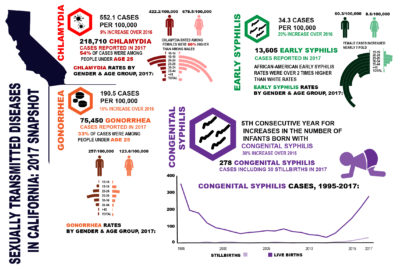HIV-AIDS Basic Information:
Unfortunately, AIDS and HIV are still a concern in this day and age. However, we do have much better treatments that exist for HIV and AIDS in comparison to the early 1980s when HIV and AIDS began to receive a great deal of attention.
A person can carry HIV for several years before any symptoms surface. In some cases, an HIV carrier may never exhibit any symptoms at all. However, it is critically important to take precautions so that you are protected from contracting HIV or AIDS. It is one of the STD/STI that needs to be given attention when you are with your sexual partner.

Possible Symptoms:
HIV can eventually turn into full-blown AIDS. Someone who does have the AIDS virus may show signs similar to flu-like symptoms. A person with AIDS may run a fever, and they may feel exhausted and have little energy. Besides, appetite could be adversely affected by AIDS. Both AIDS and HIV are transmitted through sexual contact and bodily fluids.
In some situations, a blood test can reveal HIV. If a person was an HIV carrier, they might have a meager white blood cell count. Besides, the person may experience extreme tiredness, and they may be more prone to catching cold or infection. Both AIDS and HIV attack the immune system to a significant degree. This is why most people with advanced AIDS eventually die from pneumonia.
HIV- AIDS Treatment:
Both HIV and AIDS are treatable with drug therapy. Some great drugs can lessen symptoms and prolong a person’s life. However, it is essential to take precautions so that a person does not contract HIV or AIDS. The drug AZT is an effective drug for treating HIV, and it is still used today.
Considerations- Protective Measures:
First of all, it is crucial to practice safe sex at any age. Using condoms prevents pregnancy; however, it does not afford much protection when it comes to HIV or AIDS. Therefore, it is essential to know who you are sleeping with. If necessary, a person can always request that a new man or woman in their life get an HIV-AIDS test.
A person should not become offended if they are asked to undergo testing. At least taking a test will safeguard one or both persons from possibly contracting AIDS or HIV. In this day and age, you can never be too safe.
Always keep in mind; sex may be a beautiful thing; however, it can also be deadly if you catch something. It certainly is not worth your life to engage in risky sex. It is sad to say that people are still engaging in dangerous sex practices without thinking about consequences.
Aside from sexual intercourse, HIV and AIDS can be contracted through a blood transfusion. Hospitals do have very accurate detection methods when testing blood. However, if you are in a situation where you think you may need a blood transfusion, you can always donate your blood in advance. Sometimes people elect to do this if they have an up and coming surgery scheduled.
AIDS and HIV awareness is necessary for all age groups, not only the young. People of all ages engage in sexual relations, and anyone of any age can receive a blood transfusion.
HIV/AIDS Testing:
If you have engaged in unprotected sex, it may be wise to undergo HIV and or AIDS testing. The HIV blood testing process is straightforward. It can be done in a doctor’s office or hospital.
Also, if you feel you may have been exposed to HIV through a blood transfusion, you may consider getting an HIV- AIDS blood test. It is much better to know than to ignore a possible problem. HIV testing is confidential. Take advantage of online testing and get rid of standing in long queue’s at the testing clinics, you can try some of the Online STD testing websites like STDCheck.com, STDTestExpress.com and others that offer these services.
Conclusion:
Finally, it is crucial to know as much as you can about a person before becoming intimate. Also, please stay away from dirty needles and make sure you ask a hospital or clinic about their blood screening practices. Taking precautions is the best insurance policy against contracting AIDS or HIV.